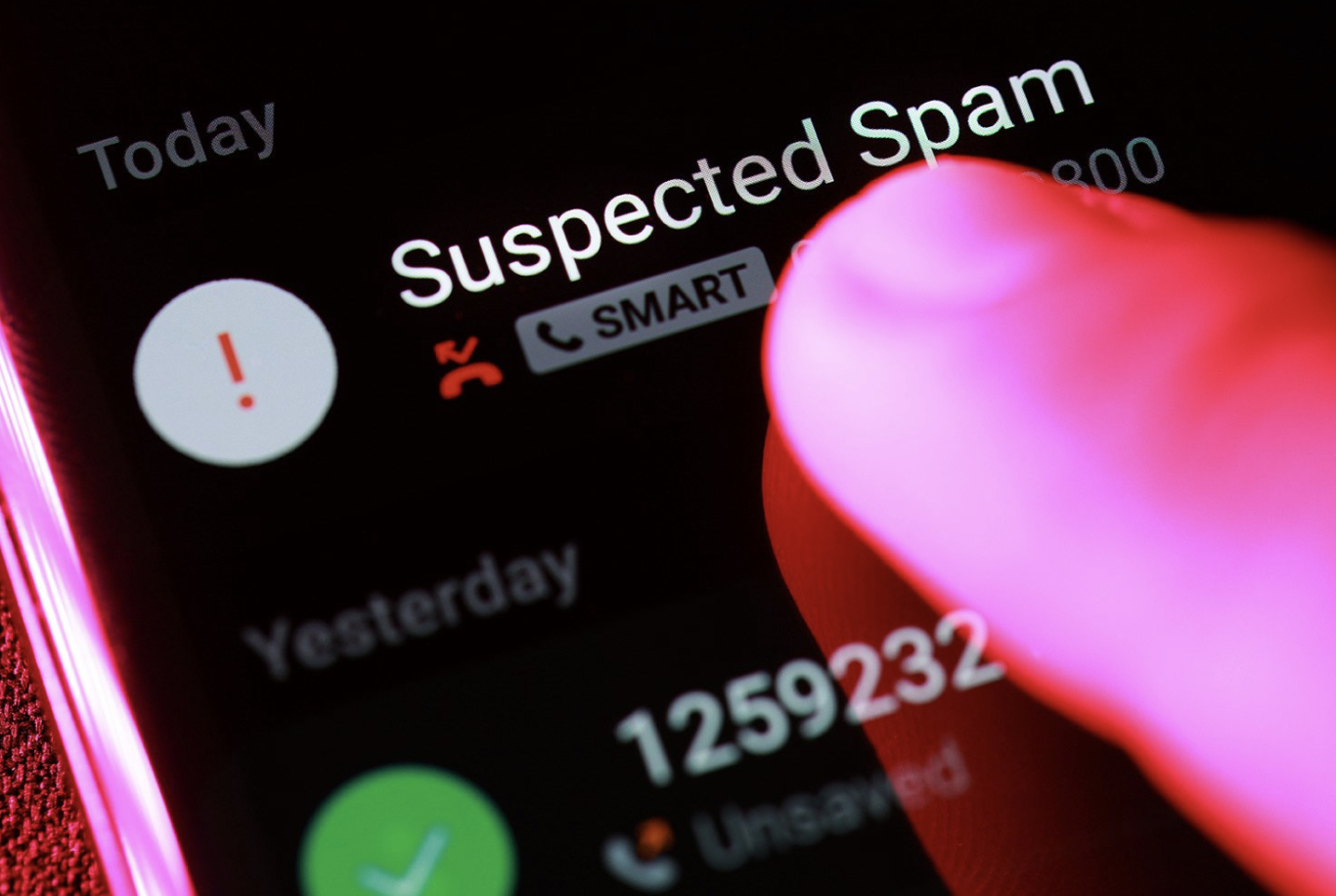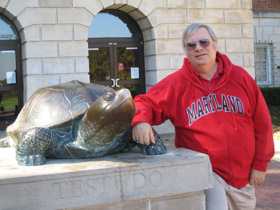"Hello, Mr. David"
20/02/24 07:01
 February 20, 2024 (Vol. 18 No. 10) - The phone rings, usually at an inopportune time. My smart phone screen warns me that it is a spam call. It also says the call is from an unfamiliar number - often from Houston, but sometimes from rural Kansas. But I know better. It is probably originating from India or the Philippines. Out of curiosity, I answer the phone. For a few seconds, there is no one at the other end - a sign that the spam warning was spot-on. Finally, I hear someone with a heavy, barely understandable accent ask if I am David Guth, the author of Thirteen Minutes: Death of An American High School. When I acknowledge that I am, the voice on the other end of the line says "Hello, Mr. David" - a greeting I find annoying, insulting and presumptuous - and proceeds to tell me that my book has been "specially" selected by a panel of editors for their company's promotional opportunities. It is a spiel I have heard literally dozens of times. Operating from a boiler room script, I am told how exceptional my book is and that they are prepared to give it the "worldwide" publicity it deserves. Let me unwrap this. First, while I am proud of my book, my first effort at writing fiction, I am a realist. I have absolutely no expectation of it suddenly rocketing to the top of The New York Times Best Seller List. (Don't get me wrong: I think it is a good story and I invite you to read it.) Second, absolutely no one on the other end of the line has actually read my book. The caller always speaks in generalities based on previously distributed promotional materials for my book. (That's where they got my name and number.) When I ask the callers what they think of my story's surprise ending, they usually tap dance for a few moments before proclaiming that it was "great." Next, they say they can provide me "worldwide" publicity for my book, usually for just a few hundred bucks. However, when I drill down into what these promotional efforts entail, I learn that they are based on a mass e-mail distribution of a news release about my book. Unfortunately for the caller, I taught college students about news releases and promotions for nearly three decades. What the caller is proposing is load of crap and would result in me just throwing away my hard-earned money. When these companies show me examples of news releases they have prepared for others, I shudder in disbelief. If any of my students had submitted that garbage to me, they would have rightfully earned a failing grade. Writing a book is a very personal experience. Exposing oneself to the critiques of others requires almost reckless courage. Unable to attract a traditional publisher, I published Thirteen Minutes through a hybrid publisher, where I assumed some of the up-front costs and will keep all of the royalties until I recoup my costs. In short, I invested in myself. If it pays off, great. If it doesn't, at least I tried. I have a second fiction coming out later this year, In the Moment: The Journey of the Class of '70. It is story about growing up on Maryland's Eastern Shore in the turbulent 1960s. Because of its regional focus, I am confident that it will be moderately successful, just like my first single-authored book, Bridging the Chesapeake: A 'Fool Idea" That Unified Maryland. I am under no illusion that some Indian or Philippine-based company channeling its marketing calls through American telephone exchanges is going to make me "The Next Big Thing." (If you want to get a sense of just how many of these vultures exist, click on this link.) I refuse to let them prey on my ego and wallet. I may not become a best-selling author. I can live with that. What I am not be willing to live with is being a gullible and stupid author. Caveat emptor. That's it for now. Fear the Turtle.
February 20, 2024 (Vol. 18 No. 10) - The phone rings, usually at an inopportune time. My smart phone screen warns me that it is a spam call. It also says the call is from an unfamiliar number - often from Houston, but sometimes from rural Kansas. But I know better. It is probably originating from India or the Philippines. Out of curiosity, I answer the phone. For a few seconds, there is no one at the other end - a sign that the spam warning was spot-on. Finally, I hear someone with a heavy, barely understandable accent ask if I am David Guth, the author of Thirteen Minutes: Death of An American High School. When I acknowledge that I am, the voice on the other end of the line says "Hello, Mr. David" - a greeting I find annoying, insulting and presumptuous - and proceeds to tell me that my book has been "specially" selected by a panel of editors for their company's promotional opportunities. It is a spiel I have heard literally dozens of times. Operating from a boiler room script, I am told how exceptional my book is and that they are prepared to give it the "worldwide" publicity it deserves. Let me unwrap this. First, while I am proud of my book, my first effort at writing fiction, I am a realist. I have absolutely no expectation of it suddenly rocketing to the top of The New York Times Best Seller List. (Don't get me wrong: I think it is a good story and I invite you to read it.) Second, absolutely no one on the other end of the line has actually read my book. The caller always speaks in generalities based on previously distributed promotional materials for my book. (That's where they got my name and number.) When I ask the callers what they think of my story's surprise ending, they usually tap dance for a few moments before proclaiming that it was "great." Next, they say they can provide me "worldwide" publicity for my book, usually for just a few hundred bucks. However, when I drill down into what these promotional efforts entail, I learn that they are based on a mass e-mail distribution of a news release about my book. Unfortunately for the caller, I taught college students about news releases and promotions for nearly three decades. What the caller is proposing is load of crap and would result in me just throwing away my hard-earned money. When these companies show me examples of news releases they have prepared for others, I shudder in disbelief. If any of my students had submitted that garbage to me, they would have rightfully earned a failing grade. Writing a book is a very personal experience. Exposing oneself to the critiques of others requires almost reckless courage. Unable to attract a traditional publisher, I published Thirteen Minutes through a hybrid publisher, where I assumed some of the up-front costs and will keep all of the royalties until I recoup my costs. In short, I invested in myself. If it pays off, great. If it doesn't, at least I tried. I have a second fiction coming out later this year, In the Moment: The Journey of the Class of '70. It is story about growing up on Maryland's Eastern Shore in the turbulent 1960s. Because of its regional focus, I am confident that it will be moderately successful, just like my first single-authored book, Bridging the Chesapeake: A 'Fool Idea" That Unified Maryland. I am under no illusion that some Indian or Philippine-based company channeling its marketing calls through American telephone exchanges is going to make me "The Next Big Thing." (If you want to get a sense of just how many of these vultures exist, click on this link.) I refuse to let them prey on my ego and wallet. I may not become a best-selling author. I can live with that. What I am not be willing to live with is being a gullible and stupid author. Caveat emptor. That's it for now. Fear the Turtle.